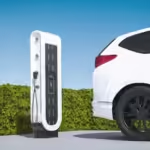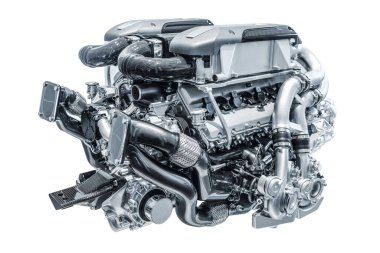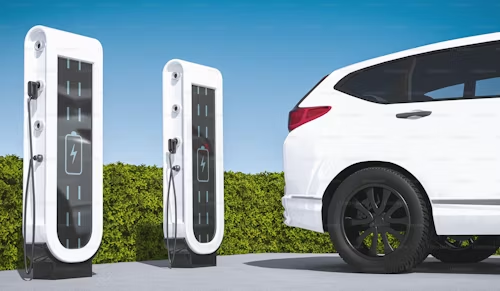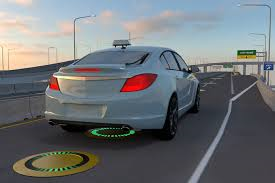
Diesel engine is a type of internal combustion engine that operates by compressing air to a high temperature, which ignites the fuel injected into the combustion chamber. This ignition process is known as compression ignition, in contrast to the spark ignition process used in gasoline engines. Diesel engines are commonly used in a variety of applications, including automobiles, trucks, buses, ships, locomotives, and stationary power generators, due to their high efficiency and robustness.
READ ALSO :Maintaining Your Vehicle Engine To last Longer 101 best way
Components of a Diesel Engine:

1. **Cylinder Block:** Similar to gasoline engines, the cylinder block houses the cylinders where combustion occurs. However, diesel engines are typically built with heavier-duty materials to withstand higher compression ratios.

2. **Pistons:** Diesel engine pistons are similar to those in gasoline engines, moving up and down within the cylinders to compress air and ignite fuel.

3. **Crankshaft:** The crankshaft in a diesel engine converts the linear motion of the pistons into rotational motion, which drives the vehicle’s wheels or other machinery.

4. **Camshaft:** The camshaft controls the opening and closing of the intake and exhaust valves, allowing air to enter the cylinders for compression and exhaust gases to be expelled after combustion.

5. **Fuel System:** Diesel engines use a high-pressure fuel injection system to inject diesel fuel directly into the combustion chamber. This system includes components such as injectors, a high-pressure fuel pump, and fuel lines.
READ ALSO :GASOLINE ENGINE :Definition, Components, Faults, Origins and Manufacturers 1

6. **Turbocharger:** Many diesel engines are equipped with a turbocharger, which compresses air before it enters the cylinders, increasing the engine’s efficiency and power output.

7. **Glow Plugs or Heaters:** In colder climates, diesel engines may use glow plugs or heaters to preheat the combustion chamber, making it easier to start the engine.

8. **Cooling System:** Like gasoline engines, diesel engines require a cooling system to prevent overheating. This typically includes a radiator, coolant, water pump, and thermostat.

9. **Lubrication System:** Diesel engines also require a lubrication system to ensure that moving parts are adequately lubricated. This system includes components such as an oil pump, oil pan, and oil filter.
Types of Diesel Engines:

1. **Inline Engine:** Similar to gasoline engines, inline diesel engines have cylinders arranged in a single row along the crankshaft. They are commonly used in smaller vehicles and are known for their simplicity and compactness.

2. **V Engine:** V diesel engines have cylinders arranged in a V-shaped configuration, with a certain angle between the two cylinder banks. This design allows for more cylinders to be packed into a smaller space and is often used in larger vehicles or high-performance applications.

3. **Boxer Engine:** In a boxer diesel engine, cylinders are arranged horizontally, with opposing cylinders moving in and out together. This layout results in a lower center of gravity and is commonly used in vehicles like Subaru.

4. **Turbocharged Diesel Engine:** Turbocharged diesel engines use a turbocharger to compress air before it enters the cylinders, increasing power output and efficiency. Turbocharging is common in diesel engines, especially in larger vehicles like trucks and buses.

5. **Supercharged Diesel Engine:** Similar to turbocharged engines, supercharged diesel engines use a supercharger to compress air. However, instead of being powered by exhaust gases, a supercharger is driven directly by the engine’s crankshaft.
READ ALSO :Impact of Using the Wrong Engine Oil on Various Types of Engines 1
Automobile Diesel Engines and Manufacturers:
1. **Volkswagen Group:** Volkswagen Group is a major producer of diesel engines for passenger cars, including brands like Volkswagen, Audi, and Skoda. Volkswagen’s TDI (Turbocharged Direct Injection) engines are known for their fuel efficiency and performance.
2. **Mercedes-Benz:** Mercedes-Benz, a division of Daimler AG, produces diesel engines for its luxury cars and SUVs. Mercedes-Benz BlueTEC engines use advanced emissions control technology to meet stringent environmental standards.
3. **BMW:** BMW manufactures diesel engines for its cars and SUVs, known for their performance and fuel efficiency. BMW’s Efficient Dynamics technology optimizes engine efficiency while reducing emissions.
4. **Ford:** Ford produces diesel engines for its trucks and commercial vehicles, including the popular Ford F-Series trucks. Ford’s Power Stroke diesel engines are known for their power and towing capabilities.
5. **General Motors (GM):** GM manufactures diesel engines for its Chevrolet and GMC trucks, including the Duramax diesel engines. These engines are known for their durability and towing capacity.
6. **Fiat Chrysler Automobiles (FCA):** FCA produces diesel engines for its Ram trucks and Jeep SUVs. The EcoDiesel engines offer strong performance and fuel efficiency.
These are just a few examples of automobile manufacturers producing diesel engines. Diesel engines are used in a wide range of vehicles around the world, with each manufacturer offering its own unique engineering and design features to meet the needs of consumers..












